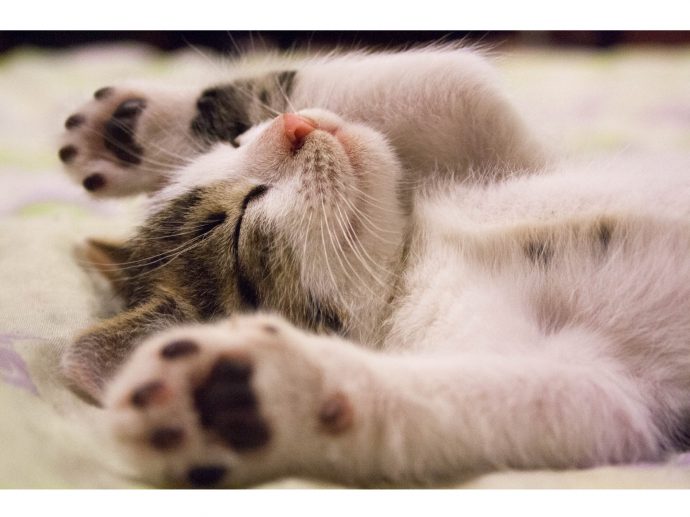Categories more
- Adventures (17)
- Arts / Collectables (15)
- Automotive (37)
- Aviation (11)
- Bath, Body, & Health (77)
- Children (6)
- Cigars / Spirits (32)
- Cuisine (16)
- Design/Architecture (22)
- Electronics (13)
- Entertainment (4)
- Event Planning (5)
- Fashion (46)
- Finance (9)
- Gifts / Misc (6)
- Home Decor (45)
- Jewelry (41)
- Pets (3)
- Philanthropy (1)
- Real Estate (16)
- Services (23)
- Sports / Golf (14)
- Vacation / Travel (60)
- Watches / Pens (15)
- Wines / Vines (24)
- Yachting / Boating (17)
Are Probiotics Good for Cats?
Published
02/21/2024Probiotics have gained immense popularity in recent years for their potential health benefits in humans, and this trend has extended to the realm of pet care.
Cats, like humans, have a delicate balance of bacteria in their digestive system that plays a crucial role in overall health.
In this article, we will explore the advantages of incorporating probiotics into a cat's diet and how they can contribute to feline well-being.
Understanding Probiotics
Probiotics are live microorganisms, primarily bacteria and yeast, that confer health benefits to the host when consumed in adequate amounts.
In cats, as in humans, the gastrointestinal tract is home to a complex ecosystem of microorganisms that influence various aspects of health, including digestion, immune function, and nutrient absorption.
Benefits of Probiotics for Cats
The benefits of probiotics for cats include:
- Digestive Health
One of the primary benefits of probiotics for cats is their positive impact on digestive health.
Probiotics help maintain a healthy balance of gut bacteria, preventing the overgrowth of harmful bacteria that can lead to digestive issues such as diarrhea or constipation.
They can also aid in the digestion and absorption of nutrients from food.
- Immune System Support
A significant portion of a cat's immune system resides in the gastrointestinal tract.
Probiotics play a crucial role in supporting immune function by promoting the production of antibodies and enhancing the activity of immune cells.
This can be particularly beneficial for kittens, elderly cats, or those with weakened immune systems.
- Reducing the Risk of Infections
Probiotics can act as a line of defense against pathogenic bacteria by outcompeting them for resources and attachment sites in the gut.
This competitive exclusion helps reduce the risk of infections and promotes a healthier microbial balance.
- Alleviating Stress-Related Issues
Cats are known for being sensitive to changes in their environment, which can lead to stress-related issues like gastrointestinal upset.
Probiotics may help mitigate these issues by stabilizing the gut microbiota and promoting a sense of balance during stressful situations.
- Managing Inflammatory Bowel Disease (IBD)
Inflammatory bowel disease is a common condition in cats that can cause chronic gastrointestinal problems.
Probiotics have shown promise in managing the symptoms of IBD by modulating the inflammatory response and supporting the overall health of the intestinal lining.
- Maintaining Urinary Tract Health
Probiotics may contribute to the overall health of a cat's urinary tract. Imbalances in the gut microbiota can sometimes lead to urinary issues in cats.
By promoting a balanced microbial environment, probiotics may indirectly support the prevention of certain urinary tract problems, such as feline lower urinary tract disease (FLUTD).
- Enhancing Nutrient Absorption
A healthy gut microbiome is essential for optimal nutrient absorption.
Probiotics can aid in breaking down and assimilating nutrients from food, ensuring that your cat receives the maximum nutritional benefit from its diet.
This can be particularly beneficial for cats with dietary sensitivities or those on specialized diets, contributing to overall well-being and vitality.
- Fostering a Healthy Coat and Skin
The health of a cat's coat and skin is closely linked to its overall well-being.
Probiotics can contribute to a shiny and lustrous coat by supporting nutrient absorption and a balanced immune response.
A well-maintained gut microbiome can positively influence the skin, helping to minimize issues such as dryness, itching, or excessive shedding.
Choosing the Right Probiotics for Cats
When considering probiotics for your feline friend, it's essential to choose a product specifically formulated for cats.
Human probiotics may not be suitable, as cats have distinct microbial needs. Look for a product that contains feline-friendly strains of bacteria, such as Lactobacillus and Bifidobacterium.
Incorporating probiotics into a cat's diet can be a valuable strategy for promoting overall health, particularly in the realm of digestive and immune function.
As with any dietary supplement, it's crucial to consult with a veterinarian before introducing probiotics to your cat's routine, especially if your cat has existing health conditions or is taking medications.















